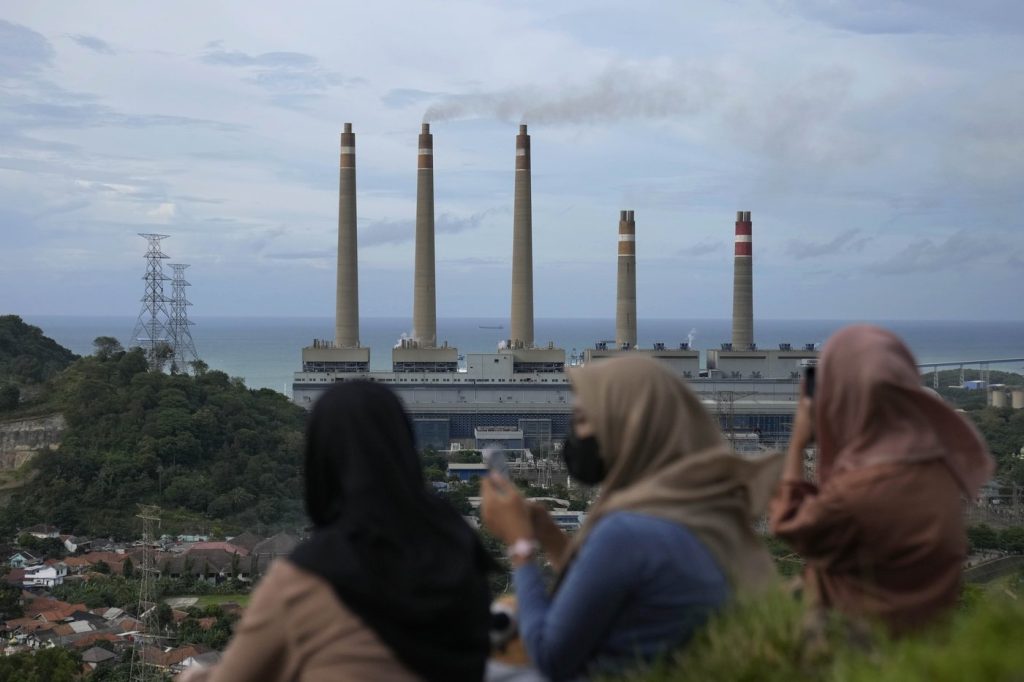HANOI, Vietnam (AP) — Indonesia's coal industry is facing increasing pressure amid declining imports from its largest customers, China and India, as highlighted in a recent report by Jakarta-based energy thinktank, Energy Shift. The report emphasizes the urgent need for the industry to transition towards cleaner energy sources to avoid a costly adjustment later on.
As the world’s largest coal exporter, Indonesia relies heavily on its coal sector, which constitutes approximately 3.6% of the nation's economic activity and provides numerous jobs. However, the anticipated long-term decline in coal demand poses significant challenges for the Southeast Asian nation with a population of around 280 million. Despite this, Indonesia’s coal production is on the rise, reportedly reaching a record high of 836 million tons in 2024, which is nearly an 8% increase from the previous year.
The country’s coal exports are heavily dependent on a limited number of buyers, with China and India accounting for nearly two-thirds of Indonesia's coal exports in 2023. While China remains reliant on coal for over half of its electricity generation, with 41% of global coal imports in 2024 translating to approximately 543 million tons, the growth in demand is increasingly being met through clean energy alternatives. Notably, over 75% of last year's demand growth came from cleaner energy sources.
Meanwhile, India's coal imports have witnessed a notable decline, falling by 8.4% to 183.42 million metric tons in the period from April to December 2024, down from 200.19 million metric tons during the same period the previous year. This decrease aligns with India's strategy to minimize its dependence on coal imports by enhancing its domestic production capabilities. The decline in coal imports for industries such as cement, steel, and aluminum is particularly significant, with a 12% drop, while thermal power plants saw an even steeper decline of 29.8%.
Experts suggest that Indonesia’s coal exports have reached a three-year low in the first four months of this year, potentially indicating a longer-term decline. According to Hazel Ilango from the Energy Shift Institute, the current market signals are critical for Indonesian coal miners to take seriously as they navigate these challenges.
There are various risks confronting the Indonesian coal sector. The majority of coal companies in Indonesia are tightly controlled by insiders—owners, executives, and board members—who hold about 75% of the shares on average. Additionally, regulatory frameworks, such as domestic supply mandates and high royalties, constrain profits, while access to global financing remains limited. The private sector and investors tend to focus more on immediate profits rather than long-term transition strategies, compounded by inconsistent government policies.
The report from Energy Shift highlights that Indonesia's coal policy is fraught with contradictions. While the country has made commitments to reduce emissions and transition to cleaner energy, it continues to expand coal production and authorize new plants. Domestic subsidies lower coal prices, but abrupt export bans hinder global market stability. Furthermore, the state utility's plans to retire coal plants early under a $20 billion transition deal appear contradictory to the ongoing development of new coal-related facilities.
Experts, including Jordan Lee from the Tony Blair Institute for Global Change in Jakarta, advise that Indonesia’s coal sector must proactively prepare for the future, especially as major coal importers like China and India recalibrate their coal consumption strategies to bolster energy security. Lee draws parallels with the experiences of large oil companies that faced adverse market reactions when failing to adapt to changing global energy landscapes.
This comprehensive report underscores the pressing need for Indonesia’s coal industry to reconsider its approach and prioritize diversification into cleaner energy solutions to ensure long-term viability in an evolving energy market.










